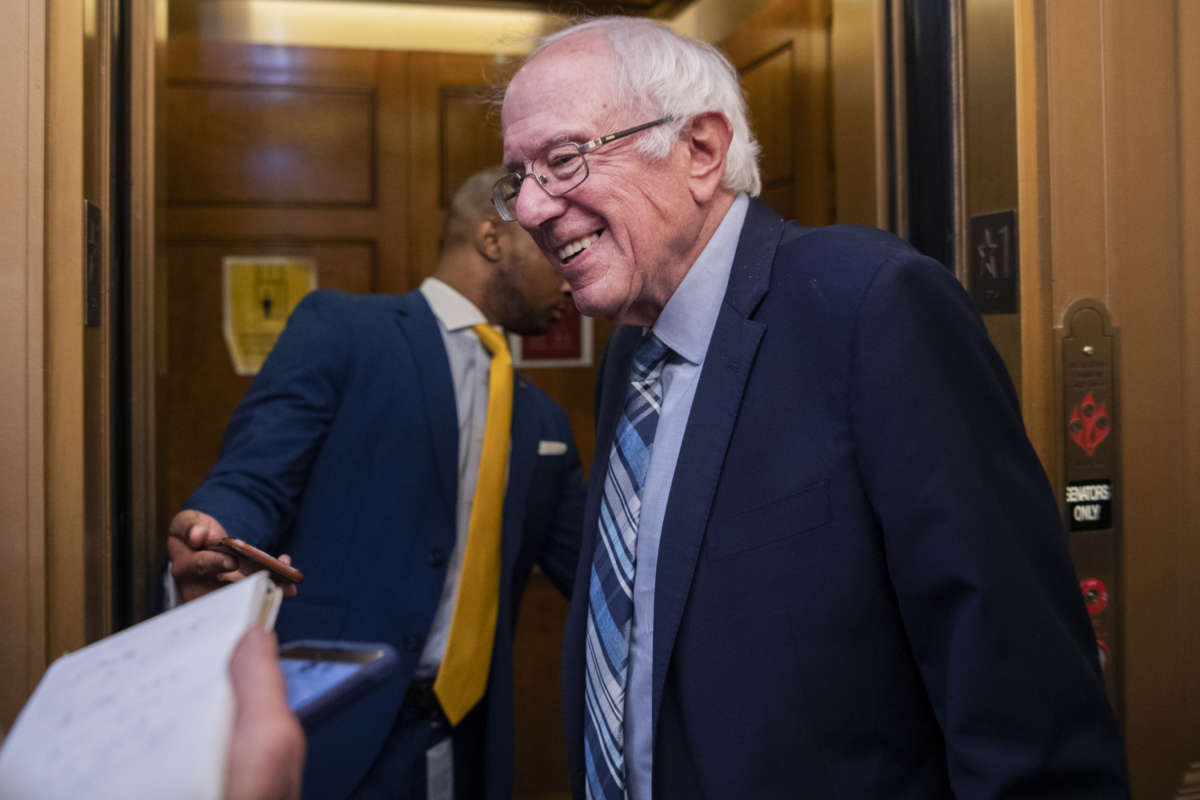The House voted to approve the budget resolution that would unlock the reconciliation process for Democrats’ $3.5 trillion Build Back Better Bill on Tuesday after an impasse with a group of conservative Democrats threatened its passage.
The House passed the resolution 220 to 212 Tuesday afternoon, with no Democrats joining the Republicans in voting no. With the budget approved by both chambers of Congress, committees can now craft the $3.5 trillion bill itself.
The chamber also approved a rule, as a concession by House Speaker Nancy Pelosi (D-California), to pledge to schedule a vote for the bipartisan infrastructure bill for no later than September 27.
It is reportedly the concession that convinced the group of centrist Democrats to agree to advance the reconciliation bill after a combative meeting between the two factions on Monday night following threats from the centrists over the past weeks to kill the bill. Indeed, Rep. Josh Gottheimer (D-New Jersey), who led the charge to obstruct the bill, voted to advance the resolution. He was joined by the rest of the centrist group in voting yes.
In spite of all the squabbling, or perhaps because of it, this is a monumental moment for the Democrats and progressives. The $3.5 trillion bill, as it’s been proposed, is a huge package representing a wide range of priorities with the aim of helping the American public in the midst of a devastating pandemic and decades-long growing income inequality.
In its current form, the bill contains some of the only consequential provisions to address the climate crisis with any chance of passing Congress. The bill also incorporates a wide range of funding for social programs like affordable housing, public transit, paid family leave, Medicare expansion, and more.
But progressive lawmakers emphasized on Tuesday that they are still planning to withhold their support for the bipartisan infrastructure bill if the $3.5 trillion bill is watered down or is not passed for any reason — as the conservative Democrats have already threatened.
If the infrastructure and $3.5 trillion bills aren’t voted for at the same time, “then [Democrats] shouldn’t count on us,” said Rep. Alexandria Ocasio-Cortez, according to Bloomberg reporter Erik Wasson.
Sen. Bernie Sanders (I-Vermont), the driving force behind the reconciliation package, said in several tweets on Tuesday “No reconciliation, no deal,” saying that the bill is crucial to tackling the climate crisis, helping seniors access health care and lowering prescription drug costs.
And indeed, as the lawmakers imply, Democrats and progressives still aren’t in the clear yet with the reconciliation bill. Sen. Kyrsten Sinema (D-Arizona) said late last month that, though she supported beginning the reconciliation process, she doesn’t support the price tag for the bill. Sen. Joe Manchin (D-West Virginia), who is always overly concerned about government spending when it comes from his own party, also said he opposes the price tag earlier this month.
Of course, the bill also faces opposition from Republicans. Senate Minority Leader Mitch McConnell (R-Kentucky) has promised a fight over the debt ceiling if the reconciliation bill isn’t paid for. The draft of the bill released recently contains provisions, largely taxes on the wealthy and corporations, to pay for the entire bill, but the Republicans will likely seek other pathways to sabotage the bill — if the conservative Democrats don’t figure out a way to do that first.
Join us in defending the truth before it’s too late
The future of independent journalism is uncertain, and the consequences of losing it are too grave to ignore. To ensure Truthout remains safe, strong, and free, we need to raise $43,000 in the next 6 days. Every dollar raised goes directly toward the costs of producing news you can trust.
Please give what you can — because by supporting us with a tax-deductible donation, you’re not just preserving a source of news, you’re helping to safeguard what’s left of our democracy.
